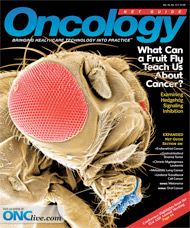Using the Internet to Optimize Informed Discourse of Public Health Policy Issues
Two seemingly unrelated news items that recently appeared in the lay press and that discussed important public health policy issues prompted the writing of this editor's page.
Two seemingly unrelated news items that recently appeared in the lay press and that discussed important public health policy issues prompted the writing of this editor’s page. The first article briefly describes the difficulty associated with understanding the language contained in the various healthcare reform bills being considered in the US Congress.1 The news story notes that “the legislation is peppered with cross references to other laws or statutes that are never explained, defying understanding by anyone without a law degree or years of legislative experience.”1 The second story deals with expressed concerns that the initial rather favorable report of the biologically and possibly clinically-relevant activity of an experimental AIDS vaccine was not completely truthful,2 as the conclusions of only one type of analysis (“intention-to-treat”) are discussed.3 An alternative examination of the data (“per protocol”) is less optimistic in its interpretation, and the results are not statistically significant. The article quotes Dr Anthony Fauci, director of the National Institute of Allergy and Infectious Diseases, who noted that “putting several biostatistical analyses in a news release would have confused everybody.” Furthermore, the suggestion that researchers were engaging in a cover-up is “absurd,” Dr Fauci said.
In fact, effective use of the Internet could have permitted accurate and timely information to be presented to the general public, various news media, and the scientific or public policy community for review, analysis, and commentary. In the case of the healthcare bills, direct links could be provided at any point in the document where the proposed legislation refers to either another section of the bill, or to existing law or regulations not contained within the bill itself.
Thus, the article notes the meaning of the term “Medicaid” as it appears in one bill as a “state plan under title XIX of the Social Security Act [whether or not the plan is operating under a waiver under section 1115 of such Act].”1 A direct link to this section of the Social Security Act or perhaps a link to another document that more fully explains this information in lay terms could be provided at this point for an interested reader.
In the case of the AIDS vaccine report, the original press release might have referenced differences between the two types of statistical analyses2 and might have also included a Web-based explanation in lay language of the possible implications of conclusions drawn from an “intention-to-treat” versus a “per protocol” evaluation. Further, the reference and explanation might have been followed by open commentary from various invited experts (statisticians and AIDS clinical trialists) in this arena providing their independent opinions of the study results. Of course, all of this discourse would be openly available for public review.
One can legitimately argue that public trust of both the scientific and political process will be strengthened if all relevant information is widely shared and openly discussed. Complex statistical analyses can be explained and, if necessary, restated so various conclusions are more understandable.
Any assumption that science or the results of important clinical trials are too complicated to fully share with the general public or that pending legislation is too legalistic for all citizens to be permitted to read is almost certainly bad public policy. The Internet is a powerful tool, and its effective use can help prevent such events from occurring.
Maurie Markman, MD, is Editor-in-Chief of Oncology Net Guide and Vice President of Clinical Research for University of Texas MD Anderson Cancer Center in Houston, Texas.
References
1. Werner E. Reading health bill not as easy as you’d think. Houston Chronicle, October 10, 2009.
2. Cohen J. Surprising AIDS vaccine success praised and pondered. Science. 2009; 326(5949):26-27.
3. McNeil DG. Success of AIDS vaccine trial is at issue. New York Times, October 11, 2009.
